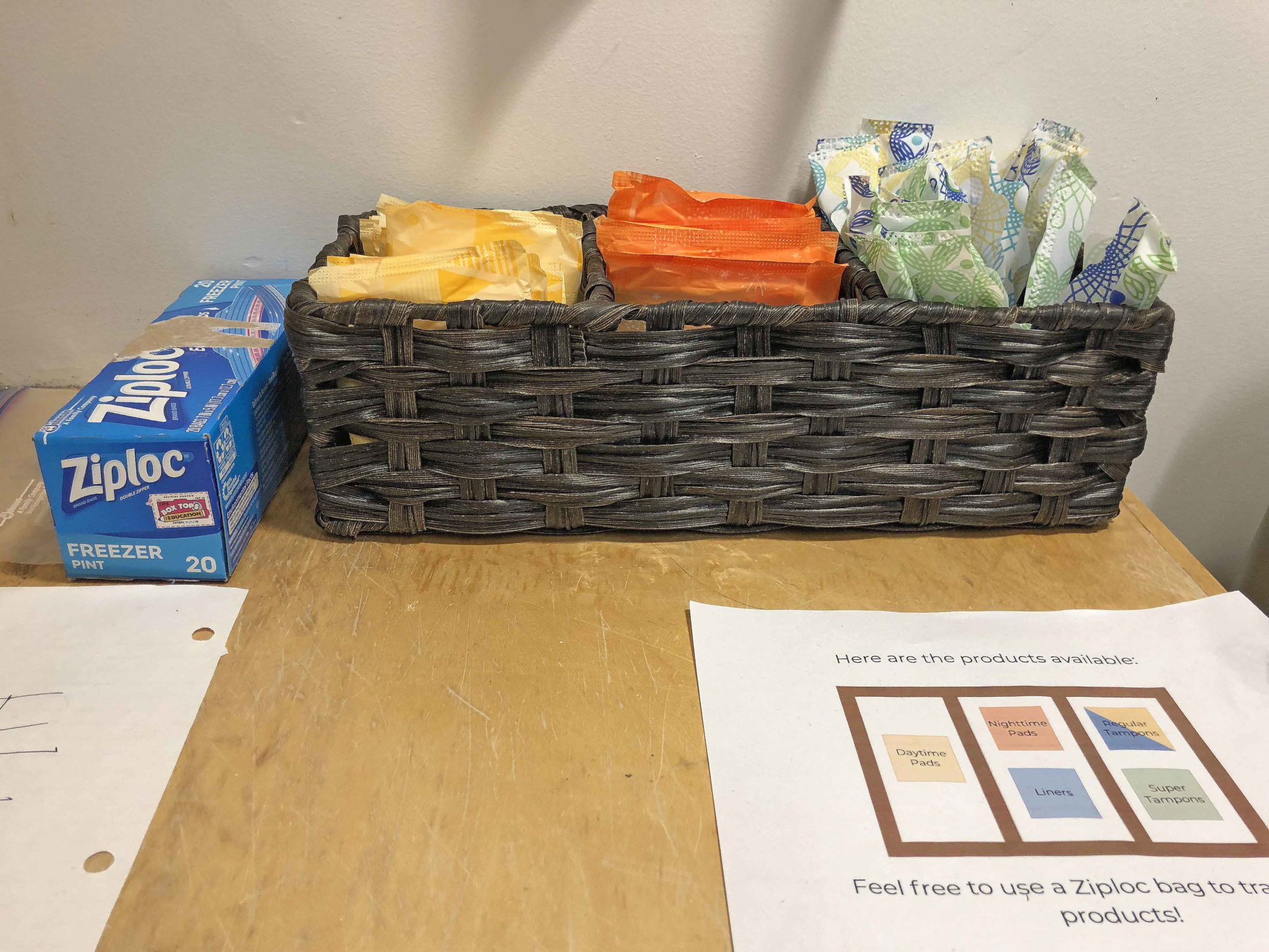
Many students across America are working to increase access to menstrual products. Joining the fight, a group of students at Yale are trying to make a difference in the Elm City.
The New Haven chapter of national nonprofit PERIOD — which aims to combat period stigma and distributes menstrual products — has released a petition asking the New Haven community to support free menstrual products in publicly funded bathrooms. The petition is part of a partnership between PERIOD and the company THINX, which is responsible for creating “period-proof” underwear. This project, called United for Access, aims to convince officials in 10 cities across the country to guarantee free menstrual hygiene products in all public bathrooms. The petition comes shortly after the formation of a PERIOD chapter at Yale.
“We are both really interested in health care and one of the largest problems in health care equality is for menstruators,” said Gina Zhu ’20, one of the chapter leaders of PERIOD New Haven. “Equal access to menstrual hygiene products is something that, across the U.S. and especially in New Haven where there is a large low-income and homeless population, is important. We thought that this is something that we could take on.”
The goal of the group is to eventually make menstrual products available in all public bathrooms funded by city government, according to Diana Ruiz ’20, another chapter leader. She said that PERIOD in New Haven would like to spread awareness and build public support for the campaign before reaching out to the New Haven Board of Education or the Board of Alders.
14 states have already stopped taxing menstrual products. Connecticut, the most recent state to join the group, passed legislation to end the “tampon tax” in 2017. But currently, only New York State is currently providing free menstrual products to all students in grades six through 12. Ruiz and Zhu hope that New Haven will follow this example.
Ruiz said that THINX, which has been lauded for its commitment to menstrual hygiene access and education, has committed to providing 4,000 pairs of their “period-proof” underwear — which is designed to replace pads and tampons — to all 10 of the cities involved in the United for Access Campaign.
“Period management is not a luxury. Students in the [U.S.] have plenty to worry about — whether or not they have the resources to properly manage their periods should not be one of them,” said THINX CEO Maria Molland in a press release last Thursday. “That’s why we’re proud to work with local activists and students across the country, supporting their campaigns to make sure their public schools — from grade school to university level — provide free and easily accessible period products for their students.”
The press release also said that the problem of “period poverty” negatively impacts young people’s education because students will skip school during menstruation without the resources to buy products.
Additionally, it could affect students’ physical health. The release pointed to evidence of students being forced to wear tampons or pads for longer than is recommended, leaving them at higher risk for toxic shock syndrome or cervical cancer.
Zhu told the News that she has personally witnessed the lack of access to menstrual products in New Haven.
“Over the summer I was at work in the medical school, and there are a lot of homeless women in the area,” Zhu said. “I stopped and asked a woman what she needed, like some food, and she said no, I need a tampon because nowhere is offering them. I just thought oh, no one is really solving this problem in this community. Why not us?”
Ruiz said that she became passionate about menstrual health after witnessing the difficulties her cousin had in obtaining menstrual products in Cuba. She noted that she wanted to be able to do something about the issue in her own community.
Ward 22 Alder Jeanette Morrison, said that she could not comment for the Board of Alders because nothing had been formally brought to the table. But as a woman, she considers access to menstrual hygiene an important women’s issue and believes that menstrual products should be available in public bathrooms.
The Yale College Council is also participating in activism to increase access to menstruation products on Yale’s campus, beginning with a pilot program in Morse and Silliman Colleges, which provided free menstrual products in common spaces of both residential colleges. YCC Vice President Heidi Dong ’20 said that the pilot programs were made possible through their connections to Morse and Silliman, but it has been difficult to obtain funding and find the best method of distribution.
Dong added that in addition to decreasing the “financial burden” of periods for students, through the program, the University would help normalize menstruation by providing menstrual products.
“People pay attention to what happens at Yale,” Dong told the News. “I think a big change like providing free menstrual products is something that has the potential to reverberate, potentially through peer institutions and beyond. Yale would be leading the way in shifting how we think about menstruation.”
While Zhu and Diaz emphasized that their work was geared towards the New Haven community, they agreed that the movement to decrease period poverty should exist across institutions and on the global stage.
PERIOD was founded in 2014 by Nadya Okamoto and Vincent Forand.
Carolyn Sacco | carolyn.sacco@yale.edu







